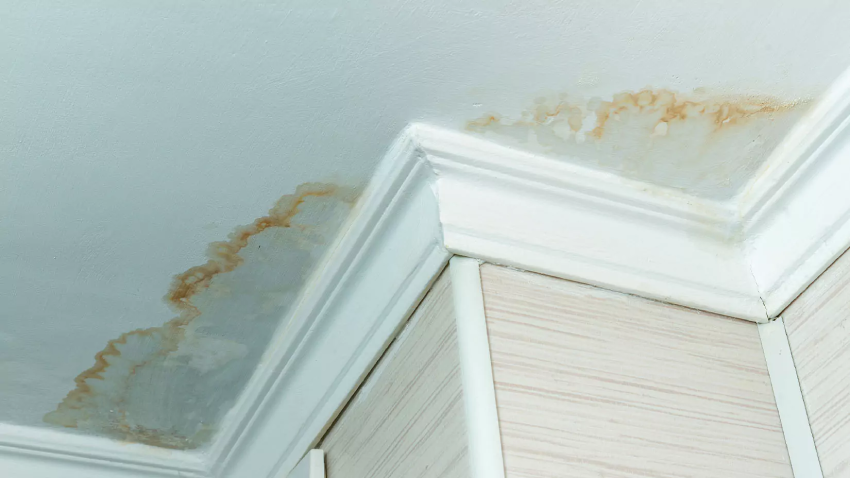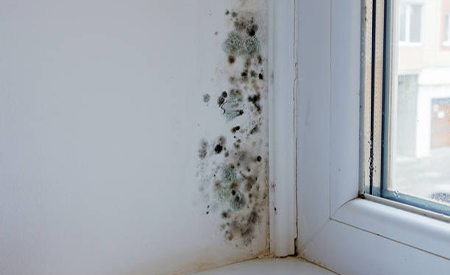Emergency Water Damage Restoration to Restore Your Property Quickly
The Process of Water Damages Cleanup: Guaranteeing Your Home Is Recovered Properly
Water damages can be an overwhelming difficulty for property owners, requiring a precise and structured cleanup procedure to recover safety and security and functionality. At first, an extensive assessment is critical to recognize the degree of the damage and identify the appropriate removal measures. Following this, efficient water extraction techniques play a crucial function in reducing more damage. Nonetheless, the nuances of drying out, sterilizing, and ultimate repair are equally necessary and typically overlooked. Recognizing these stages can make a significant distinction in the end result of your home's reconstruction, triggering a closer appearance at what each step requires.
Examining the Damage
Upon finding water damages, the initial step is to completely assess the degree of the effect. This first evaluation is crucial, as it helps establish the required actions for efficient cleaning and repair. Begin by examining the affected locations, consisting of wall surfaces, ceilings, floorings, and personal valuables, to identify the source of the water invasion, whether from flooding, leaks, or condensation.
Recording the damages is essential for both insurance coverage claims and intending restoration efforts - damage restoration services. Use photographs and written notes to catch the extent of the damages, keeping in mind any kind of damaged architectural elements and materials. Pay unique focus to locations that might not be right away visible, such as behind walls and under carpets, as hidden moisture can result in additional problems, including mold development
Additionally, analyze the timeline of the water direct exposure. The longer the products stay wet, the better the potential for damages. Recognizing the duration of exposure will educate the necessity of remediation efforts. Eventually, an extensive assessment lays the foundation for an effective water damages clean-up process, ensuring that all influenced areas are addressed efficiently and extensively.
Water Extraction Strategies

Professionals usually employ submersible pumps for bigger volumes of water, which can rapidly reduce flooding in cellars or various other affected areas. For smaller sized quantities, wet/dry vacuums are often utilized to draw out residual dampness from carpetings and hard surfaces. In addition, using mobile extractors permits for targeted removal in restricted areas or locations with delicate materials.
In circumstances of infected water, such as sewage or floodwater, advanced removal techniques may include making use of biohazard tools to guarantee safety and security and compliance with health guidelines. High-powered removal devices are essential in reducing water retention in architectural products, which can lead to mold growth and structural deterioration if not addressed without delay.
Inevitably, the performance of water removal strategies plays a critical function in the general success of the water damages clean-up process, laying the groundwork for succeeding restoration efforts.
Drying and Dehumidification
As soon as standing water has actually been properly drawn out, the following essential stage in the water damages clean-up process is drying and dehumidification. This step is important to prevent further damages and mold development, which can take place within 24 to two days in moist settings.
To accomplish effective i thought about this drying, customized devices such as industrial-grade air movers and dehumidifiers is utilized. Air movers circulate air throughout damp surface areas, improving evaporation rates, while dehumidifiers lower moisture levels in the air, promoting a helpful setting for drying. The mix of these devices guarantees that moisture is attracted out from wall surfaces, floors, and home furnishings, enabling them to completely dry completely.
It is necessary to check the drying process closely. Experts commonly make use of dampness meters to evaluate the dampness material in numerous materials, ensuring that all influenced areas get to acceptable dry skin levels. This thorough method aids to avoid surprise wetness pockets that could cause architectural damage or undesirable mold and mildew growth.

Cleansing and Disinfecting
After the drying and dehumidification phase is full, the next important action in water damages cleaning is cleansing and sterilizing the influenced locations. This procedure is important to avoid the development of mold and mildew, bacteria, Our site and other microorganisms that prosper in wet environments.
The cleaning phase normally entails removing any kind of particles, dust, and impurities from surface areas making use of specialized cleaning representatives. For tough surfaces, a combination of soap and water or industrial cleaning products is typically utilized. Soft products, such as upholstery and rugs, may require a lot more extensive cleansing methods, consisting of vapor cleaning or deep extraction techniques, to guarantee extensive cleanliness.

Disinfecting complies with cleaning, utilizing EPA-approved anti-bacterials to remove hazardous microorganisms. This action is necessary, especially in areas that may have entered into call with floodwaters or sewer, as these sources can pose severe wellness threats.
Furthermore, it is necessary to resolve any type of remaining odors, which might need making use of odor neutralizers or sophisticated methods like ozone therapy. Appropriate cleaning and sterilizing not just bring back the safety and health of your home but additionally prepared for successful remediation and repairs in succeeding stages of the water damage cleaning procedure.
Repair and Repair Work

When the evaluation is full, reconstruction efforts can start. This commonly entails fixing or changing damaged materials, ensuring that all job abides by local building ordinance and requirements. For circumstances, if drywall has actually been compromised, it will need to be removed and replaced with new product. In addition, floor covering might call for comparable water carpet attention, depending upon the level of water exposure.
It is critical to involve seasoned repair professionals during this procedure, as they have the proficiency to handle complex repair work effectively. In addition, they can help reduce possible future concerns, such as mold and mildew development or architectural instability, thus making certain a habitable and secure living environment. Eventually, reliable repair and repairs recover the home's integrity and improve its total worth.
Conclusion
To conclude, the process of water damages cleanup is critical for restoring a home to its pre-damage condition. Each stage, from examining the damages to carrying out effective water removal strategies, adhered to by complete drying out, sanitizing, and necessary repair work, plays a necessary function in making certain safety and security and conformity with building criteria. Effective execution of these actions not just reduces instant damages however additionally improves the lasting stability and value of the building.
Water damage can be an overwhelming challenge for property owners, necessitating a meticulous and structured cleanup process to restore security and functionality. Inevitably, a detailed assessment lays the foundation for an effective water damages cleaning procedure, making sure that all affected locations are resolved effectively and completely.
Efficient water removal strategies are important in reducing damage and avoiding additional problems complying with a water invasion occasion.In final thought, the procedure of water damages cleanup is critical for recovering a home to its pre-damage problem. Each stage, from analyzing the damage to applying reliable water removal techniques, followed by complete drying out, sterilizing, and needed repair work, plays a necessary role in guaranteeing security and conformity with structure criteria.